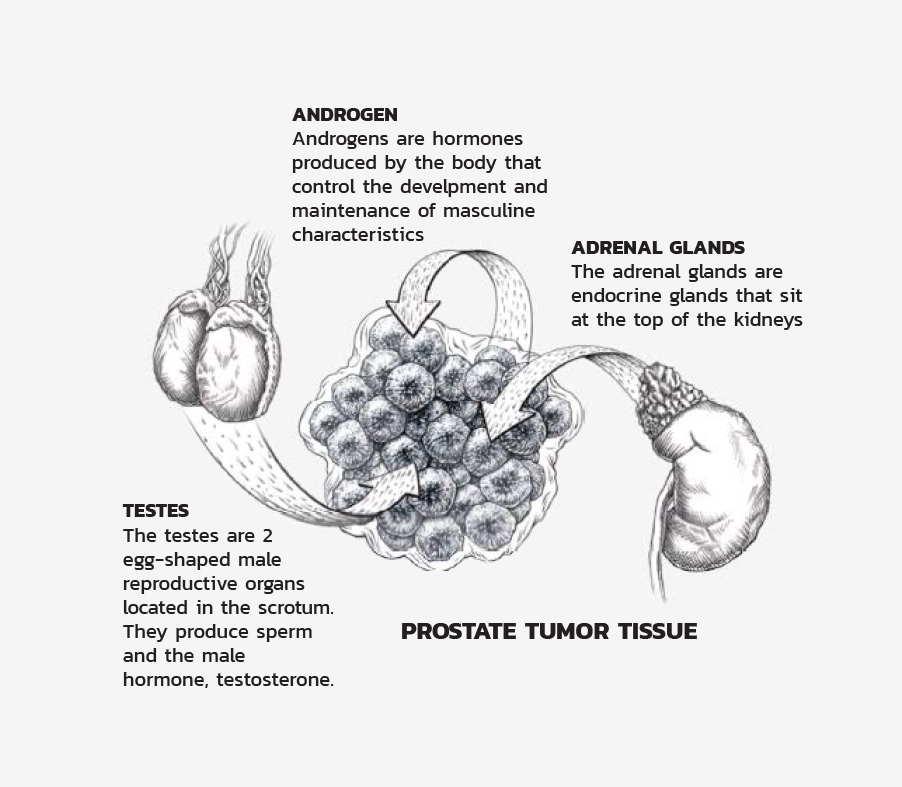Understanding Metastatic
Prostate
Cancer
Advanced Prostate Cancer
A form of advanced prostate cancer is known as metastatic prostate cancer—prostate cancer that has spread to other parts of the body.
Receiving the diagnosis of metastatic prostate cancer can be devastating, and may understandably raise a lot of questions. To help you and your loved ones feel more confident with your treatment choices, it's helpful to learn about your condition and what you can expect on the road ahead.
Understanding Advanced Prostate Cancer
There are different forms of advanced prostate cancer. Two types are metastatic castration-resistant prostate cancer (mCRPC) and metastatic castration-sensitive prostate cancer (mCSPC).
- Metastatic castration-resistant prostate cancer is a form of prostate cancer that is resistant to medical (eg, hormonal) or surgical treatments that lower testosterone, and has spread to other parts of the body
- Metastatic castration-sensitive prostate cancer is a form of prostate cancer that still responds to medical (eg, hormonal) or surgical treatments that lower testosterone, and has spread to other parts of the body. Certain men may be considered to have metastatic high-risk castration-sensitive prostate cancer. Talk to your doctor about what this may mean for you
Role of Androgen

You may be aware that the male body naturally produces hormones called androgens. The most well-known androgen in men is testosterone.
For men with metastatic prostate cancer, androgens play a role in fueling the tumor. While not the only source, androgen is produced primarily in the testes and some is also produced by the adrenal glands, which are located above the kidneys.
We now know that the tumor itself is also a source of androgen production. While there are other key factors that contribute to the disease, androgen is one such factor.
Reducing the production of androgen is key in helping you and your doctor manage your illness.
Find more information about advanced
prostate cancer at
My Prostate Cancer Roadmap.

